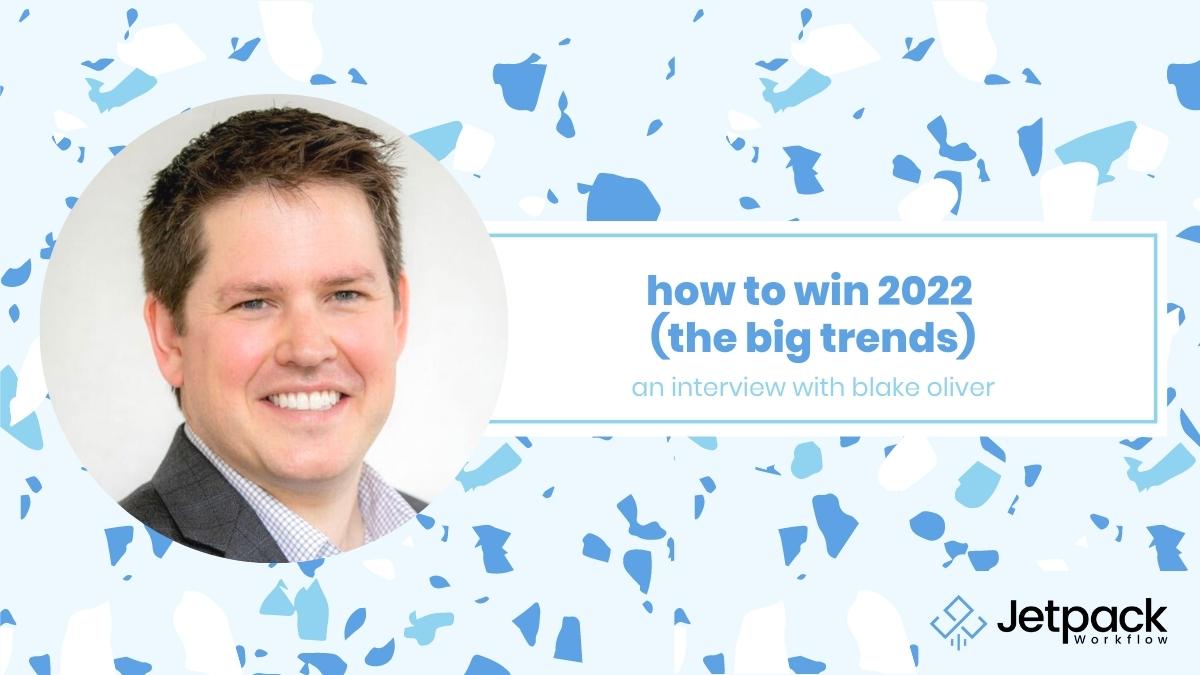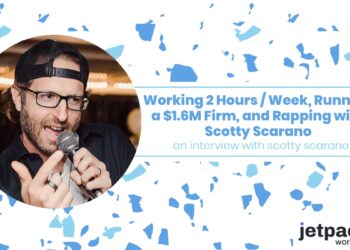How to Win 2022 (The Big Trends)

Podcast
Summary
- Tapping into the Subscription Method
- Shifting to Remote Work
- Blockchain Accounting Firms?
Connect with Blake Oliver
- Visit the Earmark CPE website
- Subscribe to the Cloud Accounting Podcast Newsletter
- Listen to the Cloud Accounting Podcast on all podcast streaming platforms
Meet Blake Oliver
Blake Oliver is a returning guest to the Growing Your Firm Podcast. He is the founder of Earmark CPE and the Accounting Community Advocate with Relay Financial.
His big project at the moment is the Earmark CPE app which allows listeners to get Continual Professional Education credits for listening to podcasts. He is also the host of the Cloud Accounting Podcast, which he has been doing full-time for about a year now.
Blake has a great pulse on the accounting community and loves to look at business trends from an accounting firm and accounting industry perspective. Heading into the new year, Blake has a good idea of what trends will take the accounting community by storm.
Anticipating the Trends that will Matter in 2022
Much has been discussed and debated about the future of accounting. These conversations can be helpful and they can also be overwhelming. On one hand, those who are ahead of the curve can get the most value from new ideas and tools benefitting the profession.
But at the same time, too many new ideas create confusion and more on the plate of already busy accountants.
Enter Blake. In this conversation, we’ll point out the trends that truly matter, and should lead you to a successful 2022.
Let’s dig in.
Get everything you need to manage projects and meet deadlines.
Subscribe to our weekly newsletter, and get 32 free accounting workflow templates today!
sign me up!
Over the past decade, the subscription economy has changed the way businesses offer their services. Companies like Netflix, Spotify, and Hulu offer monthly packages/rates customers can purchase to receive their services. It’s becoming more and more popular because it’s a reliable way for customers to ensure they get their products and for businesses to ensure they get recurring revenue.
Blake says this is affecting the accounting world in more ways than one. In the past, nearly 80% of firms charged based on fixed fees. Now, more and more firms are moving to recurring billing by charging their clients on a monthly/quarterly/yearly basis. While there’s a variety of benefits, the primary one is this method of pricing smooths out cash flow. Firms no longer have to wait for tax season or a project to be completed to get paid, instead, they can count on the steady flow of revenue.
What’s the hold-up with using this method?
Blake suggests that the firms who haven’t made the shift to subscription-based pricing haven’t seen how well it works because GAP accounting gets in the way. This idea is outlined by Tien Tzuo in Subscribed, a book that explains why the subscription method will be entwined into most businesses.
In a subscription business, the primary asset is the subscriber. With this model, firms are valued higher because payments are basically guaranteed and your value exceeds more than you paid to get it. However, accountants don’t count subscriptions in assets because they are intangible, therefore, you aren’t seeing them for their full value. This gives the illusion that the subscription method isn’t successful and therefore doesn’t illustrate its value.
Blake suggests accountants divide income into recurring and nonrecurring so you can see both on the income statement. When you do that, the valuation of firms using the subscription model will be much higher.
He offers a bit of advice: If you are interested in buying a subscription-based firm, do it now before people start to catch on to the value.
Beating the Big Guys
Blake agreed that firms may be skeptical of using the subscription model because they’ve seen big businesses, like Scale Factor, fail under this method.
Their advice to get around this roadblock? You have the human element they don’t have. They say the human element will always succeed and because, without it, there is no stickiness to the subscriber. Firms can take advantage of the subscriptions method because they also included a personal connection with the deal.
Shifting to Remote Work
On the topic of personal connection, Blake shared his theory that more and more firms will begin to take advantage of the work-from-home movement that is sweeping the world. He says the number of remote workers has shifted from just 3% to 20%. He says employees are also enjoying the option for hybrid work, which lets them work from home and come into the office on select days, as often or infrequently as they’d like.
David mentioned that with remote workers, the talent pool increases, however with hybrid workers, it’s a little more limited.
While employees enjoy the option of remote work, it comes with its downsides, including:
- Employee disengagement
- Whistleblowing
- Lack of culture
When too much of this occurs, it can cause major issues for your firm.
Blake’s advice is to adapt to the way employees are willing to work. Perfecting the people side is what gets you top talent and a happy team.
Blockchain Accounting Firms?
While there wasn’t much time left in the podcast to discuss how blockchain will influence accounting firms, Blake explained that instead of one person owning a firm, many people would own the firm.
This strategy creates a form of decentralized ownership, which leads to more liquidity.
It’s a concept Blake and David hope they can discuss further on the Growing Your Firm Podcast.
To hear more about tapping into the subscription method, shifting to remote work, and the possibility of blockchain accounting firms, listen to the full podcast above!





